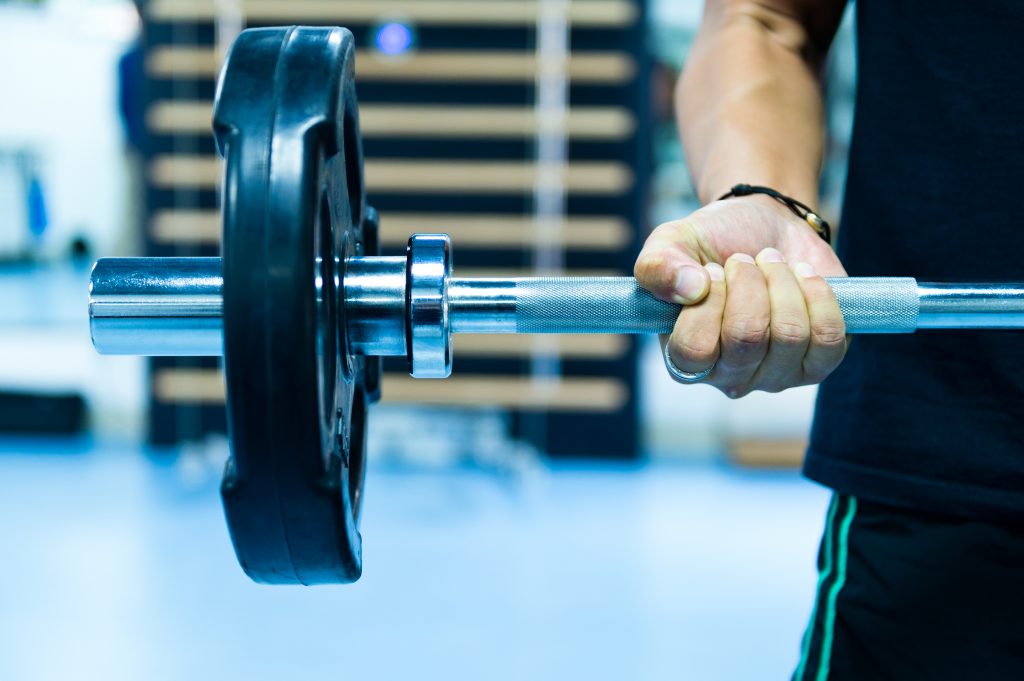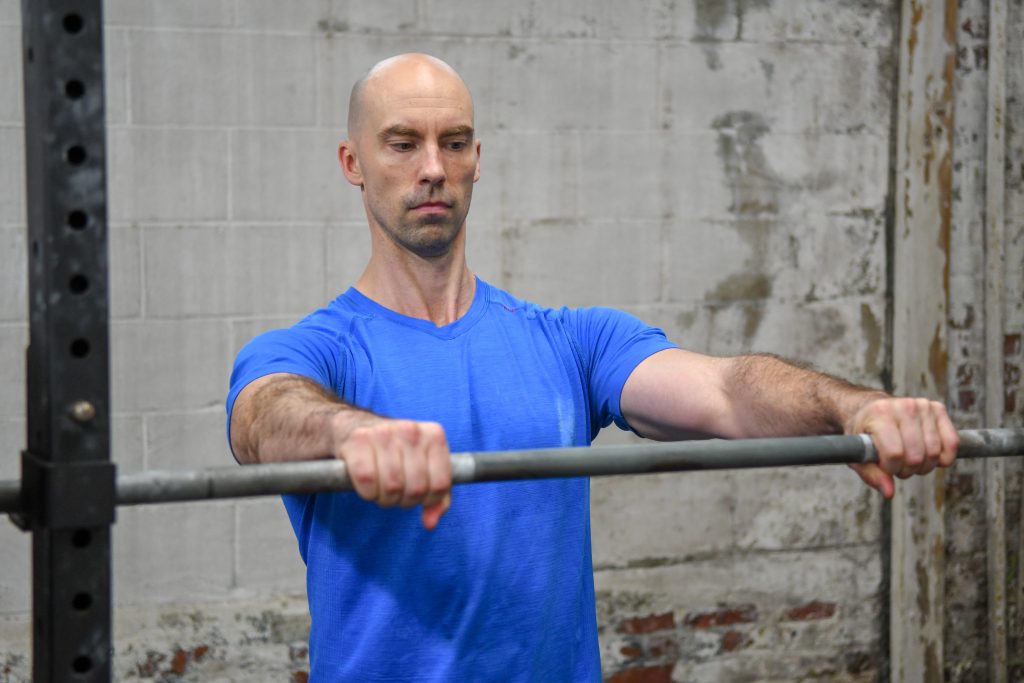As this post goes live, I am on a plane on my way back to Boston.
It’s sad leaving Florida…especially given how scorching hot the rest of the country is at the moment (100-115 degrees on BOTH coasts).
It’s quite ironic that, of all places, Florida has arguably the best weather in the country right now given we’re entering the heart of the summer. I mean, I’d have put my bets on the inside of a live volcano being a better place to be at this point in the year.
Nevertheless, weather notwithstanding, my good friend and colleague, Shane McLean, came through and delivered a sweet guest post for me to post during my travel day.
Enjoy!

5 Next Level Super Sets For Better Results
Supersets are a fantastic training method.
You can pair almost any exercise together to build muscle, lose fat or bring up body parts that are lagging behind. Plus, you’ll do more work in less time and hit the showers early while the Instagram stars are still taking their selfies. Don’t you love how they hog all the mirror space?
If supersets are NOT a part of your routine, you’re truly missing out.
And you don’t want to miss out, do you?
Here is the lowdown on supersets and why they should be a part of your training.
Advantages Of Supersets
- Increase the efficiency of your training because you’re reducing the rest intervals between exercises. Making sure you have all the equipment you need beforehand works best
- Having reduced rest periods will increase intensity of your training by performing more work in less time.
- Increased fat loss potential because the shorter rest periods between exercises and back to back contractions in supersets can help promote an additional stimulus for fat loss.
- Increased fat loss because of the reasons above when you use it in combination with a caloric deficit.

Tony contemplating performing a superset
However, supersets are not great for every goal.
Disadvantages Of Supersets
- The increase in intensity can lead to a drop off in exercise performance and technique. This may lead to injury.
- It’s difficult to juggle different weights for different exercises. Monopolizing the equipment in a busy gym may lead you to be the unpopular person who hoards the dumbbells.
- As good as the they are for hypertrophy and fat loss, they’re not the most ideal way to build strength because you cannot go as heavy and the limited rest between exercises compromises recovery.
- They’re difficult for beginners when they’re unfamiliar with both movements which lengthens the learning curve and may lead to injury.
5 Superset Types With Training Examples
The types of supersets you use depend on your current goals, whether it be fat loss, hypertrophy or bringing up a lagging body part. And it also depends on whether you’re a beginner or advanced trainee, and on how much time you must train or how much pain you’re willing to stand.
Here are five superset types that you can use now to take your training to the next level.
1. Post and Pre-Exhaustion Supersets
These take muscle discomfort to a new level.
With post exhaustion you combine a compound exercise with an isolation exercise afterwards to exhaust all the muscle fibers in a certain muscle group. This way you get the greatest strength benefits from the compound movement.
A pre exhaustion superset is the single joint movement that is done before the compound exercise. This produces a higher level of muscle fatigue and damage to the targeted muscle group.
Both are great for bringing up a lagging body part. However, make sure the compound move trains the muscle you’re going to isolate.
Post Exhaustion Superset Examples
1. Quads
1A. Squat variation 6-12 reps
1B. Leg extensions 12-20 reps
2. Hamstrings
1A. Hip hinge variation
1B. Stability ball hamstring curl 12-15 reps
3. Biceps
1A. Chin up variation 6-12 reps
1B. Zottaman curl 10-15 reps
4. Triceps
1A. Push -Up variation 8-15 reps
1B. Overhead triceps extensions 12-20 reps
Pre-Exhaustion Supersets Examples
5. Biceps
1A. Barbell biceps curl 8-15 reps
1B. Supinated Lat Pulldown 8-12 reps
6. Hamstrings/Glutes
1A. Seated Leg curl 8-15 reps
1B. Barbell Hip thrust 6-12 reps
7. Triceps
1A. Triceps push down 8-15 reps
1B. Single arm floor press 6-12 reps
8. Shoulders
1A. Dumbbell front raise 8-15 reps
1B. Dumbbell seated overhead press 6-12 reps
2. Compound Supersets
A compound set trains the same muscle group, where you can hit the group from different angles to achieve more muscular tension.
This is a time-efficient way to train for hypertrophy of a muscle group, if you can stand the pain. And for this reason, these should be at the start of your training when you have the most energy.
However, this is an advanced method because heavier weights are used in both exercises on the same body part which can lead to muscular fatigue and drop in performance and technique.
For example,
1. Chest
1A. Barbell bench variation 6-8 reps
1B. Single arm floor press 8-12 reps
2. Back
1A. Seated row 8-12 reps
1B. Single arm lat pulldown 12-15 reps
3. Legs- squat focus
1A. Barbell Front squat 4-8 reps
1B. Dumbbell jump squats (use 10-25% of your body weight) 3-6 reps
4. Legs- Hinge focus
1A. Romanian deadlift 8-12 reps
1B. Barbell hip extensions 6-8 reps
3. Isolation Supersets
You can save time because you’re working a smaller muscle group in the same amount of time as one exercise and all the focus is on the one muscle, helping you feel the burn and for flex appeal
These are great for bringing up a lagging body part or a weaker muscle that could be hindering your performance in a compound exercise. For example, weaker triceps hindering lockout in the bench press.
These supersets are best done at the end of your training because you’ll want to save your energy for the larger compound movements.
1. Biceps
1A. Incline biceps curl 12-25 reps
1B. Concentration curl 12-25 reps
2. Shoulders
1A. Dumbbell lateral raise variation 12-15 reps
1B. Band pull aparts (high reps) 25 reps
3. Triceps
1A. Triceps (rope) pulldown 12-25 reps
1B. Skull crushers 8-12 reps
4. Glutes
1A. Single leg hip extensions 12-15 reps
1B. Lateral band walk 12-15 reps on each side
4. Lower/Upper Body Supersets
This is the least taxing of all the techniques listed so far because you’re working two completely unrelated muscle groups. These are great for full rest and recovery of a muscle group and for full body workouts when time is an issue.
They’re best used for full body workouts or full body splits and are ideal for beginner trainees. However, if strength is your goal, give these a wide berth.
And they’re great for fat loss because alternating blood flow between your upper and lower body makes the heart and lungs work harder, helping you burn more calories.
Note – There are lots of examples here. This is only a few suggestions.
For example:
1A. Squat variation 8-12 reps
1B. Barbell bench press 8-12 reps
1A. Barbell squat variation 6-12 reps
1B. Chin ups 6-12 reps
1A. Barbell hip thrust 6- 8 reps
1B. Floor press 6- 8 reps
1A. Barbell push press 6-12 reps
1B. Chin ups 6-12 reps
5. Strength/Mobility Supersets
A strength exercise done for heavier weights combined with a mobility exercise will help improve your exercise technique and recovery when strength is your focus.
Let’s say you’re having a little knee discomfort with the squat and your knees are going excessively over the toes. Plus, it is hindering your squat depth and you’re not strengthening all parts of the movement.
Don’t go into corrective exercise purgatory, pairing an ankle mobility exercise with your squat may help solve this problem. And you can follow this logic with all strength exercises that need mobility.
Note – This is just one method you can use when a strength move causes you discomfort.
For example,
1A. Deadlift variation 3-6 reps
1B. Hip flexor mobilization 8 reps
1A. Shoulder press variation 8-12 reps
1B. Forearm wall slides 8 reps
1A. Barbell squat variation 3-6 reps
1B. Rocking ankle mobilization 8 reps
1A. Barbell bench press 3-6 reps
1B. Thoracic extensions 8 reps
Wrapping Up
Supersets are an efficient way to train and are used in many ways to match your goals. Pair exercises wisely for great results and more flex appeal.
Make it #flexfriday every day.
About the Author
Shane “Balance Guy’ McLean” is an A.C.E Certified Personal Trainer working deep in the heart of Louisiana with the gators.



